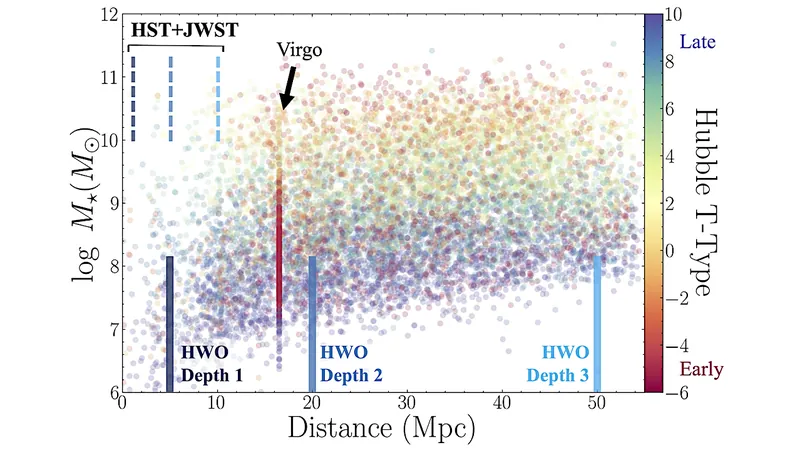
Why Fathers Are Left Behind: The Struggles of New Dads in a System That Ignores Their Needs
2025-05-31
Author: Arjun
The Untold Struggles of New Fathers
When Dean Rogut became a first-time father, his journey didn’t unfold as he had envisioned. With his wife put on bed rest early in her pregnancy, they faced a whirlwind of challenges, culminating in their son Max being born prematurely at just 24 weeks. For the following months, their lives revolved around the NICU, where Dean assumed the role of the stoic supporter—focused on keeping his family afloat.
Invisible Pain: The Forgotten Dads
In the midst of this turmoil, Dean felt emotionally adrift, often overlooked by healthcare professionals who primarily focused on his wife’s wellbeing. It wasn’t until his wife was diagnosed with postnatal depression that he could even think to voice his own struggles. "There was nothing really for me," he reflects, highlighting a pervasive lack of support for new fathers.
Hidden Mental Health Crisis Among Fathers
While maternal mental health has gained recognition and systems are in place to help mothers, fathers have remained largely ignored. Studies reveal that about 10% of fathers experience significant mental health difficulties during the perinatal period, a statistic often brushed aside. This neglect not only affects the fathers but extends to their partners and children, creating a ripple effect of dysfunction.
The Isolation of Fatherhood
As Associate Professor Jacqui Macdonald points out, society often views fathers merely as secondary supporters for mothers, failing to provide a community of support for men navigating the life-altering transition to parenthood. This isolation can lead to dire mental health consequences, leaving many fathers struggling silently.
The Urgent Need for Change
Experts argue that both cultural and systemic shifts are essential. For instance, the NHS has begun screening fathers for mental health issues after their partners are identified as needing support—an initiative that should be broadened globally. By focusing on fathers' well-being, we can improve family dynamics and ultimately ensure better care for mothers and children.
Evolving Perceptions of Fatherhood
The landscape of fatherhood has changed in recent decades, with expectations for fathers to be involved and nurturing. Yet, societal messages continue to portray fathers as less engaged in parenting. This disconnection can leave men unprepared and struggling during one of life's most significant transitions.
Practical Solutions for Support
Innovative initiatives like apps designed to help fathers track their moods and receive mental health support demonstrate the potential for positive change. Programs such as SMS4dads have shown promising results, enhancing fathers' relationships with their children and partners and reducing feelings of isolation.
A Call to Action
As Dean reflects on his past, he considers how different his experience might have been if he had received timely support. "I don’t think I would have ended up in the hospital," he admits, thinking of the proactive measures that could have been taken.
Moving Forward: Understanding the Whole Family System
To truly care for families, we must understand parental dynamics as interconnected systems. Every father’s mental health is pivotal to the family’s overall wellbeing. The time has come to foster open conversations and supportive measures that recognize fathers’ needs—ensuring no parent feels invisible during such a critical time.




 Brasil (PT)
Brasil (PT)
 Canada (EN)
Canada (EN)
 Chile (ES)
Chile (ES)
 Česko (CS)
Česko (CS)
 대한민국 (KO)
대한민국 (KO)
 España (ES)
España (ES)
 France (FR)
France (FR)
 Hong Kong (EN)
Hong Kong (EN)
 Italia (IT)
Italia (IT)
 日本 (JA)
日本 (JA)
 Magyarország (HU)
Magyarország (HU)
 Norge (NO)
Norge (NO)
 Polska (PL)
Polska (PL)
 Schweiz (DE)
Schweiz (DE)
 Singapore (EN)
Singapore (EN)
 Sverige (SV)
Sverige (SV)
 Suomi (FI)
Suomi (FI)
 Türkiye (TR)
Türkiye (TR)
 الإمارات العربية المتحدة (AR)
الإمارات العربية المتحدة (AR)